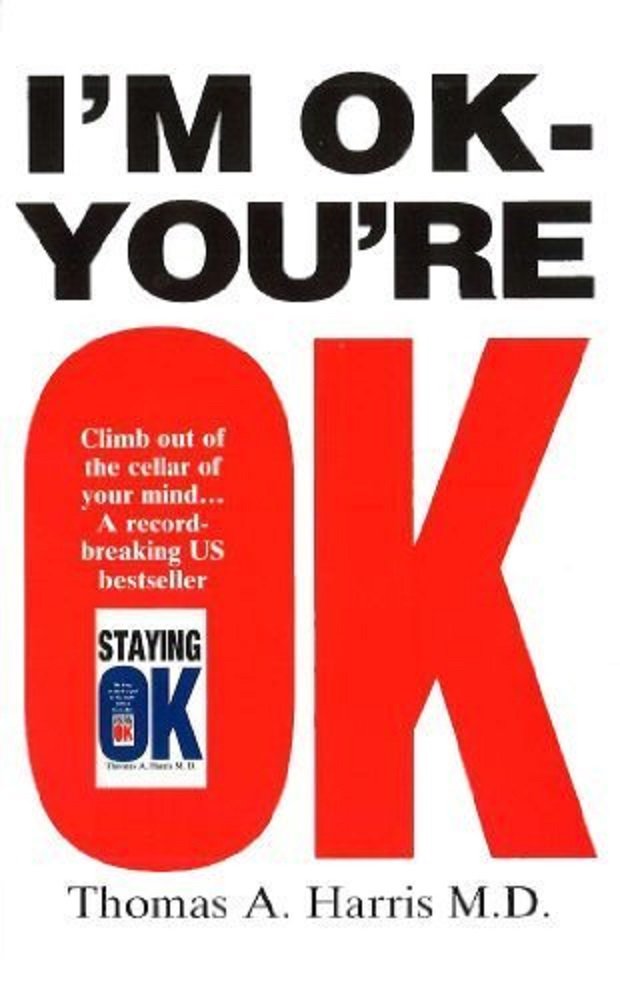Comprehensive Review of "I'm OK--You're OK" by Thomas A. Harris, MD
Thomas A. Harris's "I'm OK--You're OK" provides a detailed exploration of Transactional Analysis (TA) as a tool for personal growth, emphasizing the potential for change and improved interpersonal relations.
Subjects: Psychology, self help
Thomas A. Harris, MD’s “I’m OK–You’re OK” is a seminal work in the field of psychology, particularly in the area of Transactional Analysis (TA). Harris’s book, grounded in the principles of TA developed by Eric Berne, offers an accessible and practical framework for understanding the dynamics of human relationships and personal growth. The book’s central thesis posits that individuals can achieve significant improvements in their lives and relationships by understanding and altering their life positions, which are shaped by early childhood experiences.
Transactional Analysis (TA) and Its Importance: Harris elucidates the concept of TA, which categorizes the human psyche into three ego states: Parent, Adult, and Child. He explains how these states influence our interactions and shape our perceptions of ourselves and others. The book underscores the significance of recognizing which ego state we are operating from in various situations, as this awareness can lead to healthier communication and relationships.
The Four Life Positions: Central to Harris’s thesis is the concept of life positions, the most famous of which is the titular “I’m OK, You’re OK.” This position represents an ideal state of mutual respect and acceptance, contrasting with less healthy positions such as “I’m OK, You’re Not OK,” “I’m Not OK, You’re OK,” and “I’m Not OK, You’re Not OK.” Harris argues that moving towards the “I’m OK, You’re OK” position is crucial for personal development and fulfilling relationships.
Let’s delve into the nuances that Harris attributes to each position:
- I’m OK, You’re OK: This is the healthiest position and represents a state of mutual respect and acceptance. It indicates an individual’s ability to recognize their worth and the worth of others, facilitating positive interactions and personal growth.
- I’m OK, You’re Not OK: This position often leads to feelings of superiority and a tendency to blame or criticize others. It can hinder personal relationships and limit an individual’s ability to connect with others empathetically.
- I’m Not OK, You’re OK: In this position, individuals may feel inferior or inadequate compared to others. It can lead to a lack of self-esteem and difficulties in asserting oneself in personal and professional relationships.
- I’m Not OK, You’re Not OK: This is the most despairing position, where individuals see both themselves and others in a negative light. It often results in withdrawal from relationships and a pessimistic outlook on life.
Harris emphasizes that understanding and acknowledging one’s life position is crucial for initiating change. By recognizing these positions, individuals can work towards adopting the “I’m OK, You’re OK” stance, which is conducive to healthier relationships and a more fulfilling life. Harris provides strategies and insights into how one can transition from negative life positions to a more positive outlook, underscoring the transformative power of self-awareness and intentional action in personal development.
The Potential for Change: A key theme of the book is the potential for change. Harris challenges the deterministic view that past experiences irrevocably shape our behavior and relationships. Instead, he presents a hopeful perspective, asserting that through understanding our past and employing TA techniques, we can rewrite our life scripts and adopt more positive life positions.
Application to Various Aspects of Life: Harris doesn’t limit the application of TA to therapy alone; he extends it to marriage, parenting, education, and even social and moral values. This broad applicability makes “I’m OK–You’re OK” a valuable resource not just for professionals in the field of psychology but for anyone seeking to improve their interpersonal relationships and self-understanding.
Comparative Analysis with Similar Works: Comparing “I’m OK–You’re OK” with other self-help and psychology books reveals Harris’s unique contribution to making complex psychological concepts accessible to a lay audience. While other works, such as Berne’s “Games People Play,” focus on the games played in transactions, Harris’s work emphasizes the potential for growth and healing through understanding and changing one’s life position.
Conclusion: “I’m OK–You’re OK” remains a cornerstone in the self-help genre, offering insightful analysis and practical advice for navigating the complexities of human relationships. Its enduring popularity underscores the timeless relevance of its core message: through understanding ourselves and our interactions with others, we can move towards healthier, more fulfilling lives.
In exploring similar themes of personal development and interpersonal relationships, readers might also find value in “Games People Play” by Eric Berne, which delves deeper into the specific interactions within Transactional Analysis, and “How to Win Friends and Influence People” by Dale Carnegie, which, while predating TA, shares the goal of improving interpersonal skills and personal success.




